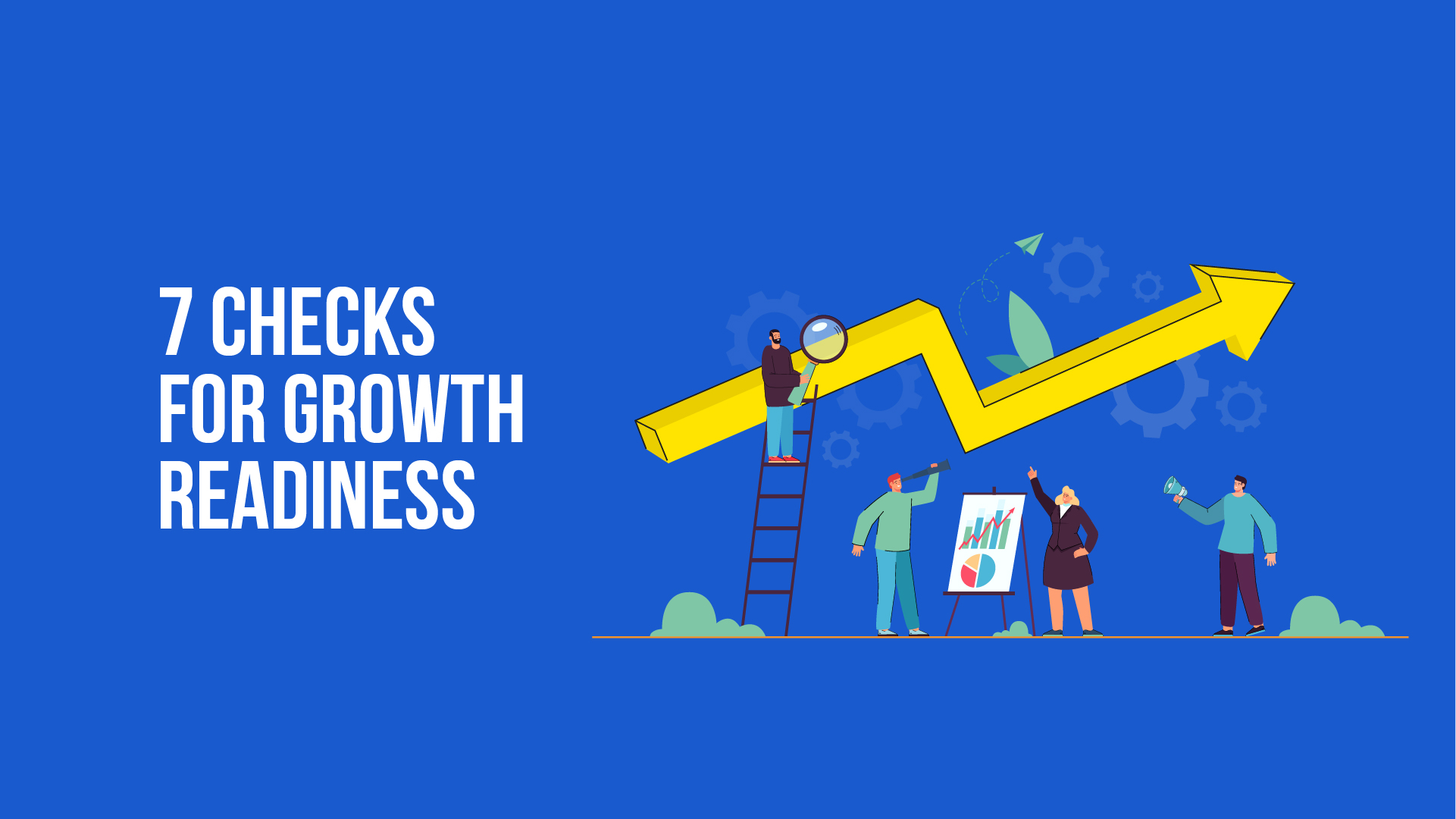Is Your Business Ready to Take the Next Step? Check for These 7 Signs

Every business leader dreams of growing taking their business to new heights. Whether it is growing headcount, investing in new products, or opening new regions, scaling helps you build a financially stronger and operationally resilient organization. Considering the investment in time, money, or people, it’s important to know when and how to begin this process. Start hiring too soon and you’ll end up wasting resources that spend time sitting on the bench. Start too late and you could miss opportunities.
Over the years we at Finout have helped dozens of companies navigate these tricky questions and scale successfully. Here are 7 key signs we’ve noticed that can indicate your company is ready to take the next step.
1. Good Financial performance, aka profitability or cash flow positive:
Before you start scaling up, you must first have a strong financial foundation. We’re not talking about the depth of your pockets but about whether your business is cashflow positive and generates a profit. If you are spending more money than you are making, or if you have issues with payment cycles, it is best to fix such problems first because they will only get worse with scale.
2. Backlog – demand for your product/service exceeds supply:
Does your demand exceed supply? In other words, you are turning away new customers or orders because you have resource constraints? If your product is in high demand and you know It may be time to scale so that you can level up your production.
3. Strong customer retention:
If you have clients that have been with you for long and show no signs of leaving, it proves that you’ve found product market fit. On the flip side, if customers are not sticking around, then that is the problem you fix. Find out where the service gap is and prove that you can build long-term relationships so that you can reap greater benefits when you decide to scale.
4. Sales predictability
Do you occasionally have a huge month of sales? A sign your business is not ready to scale is when you have really big swing in sales from period to period. And no, I am not talking about seasonal fluctuations here. I’m referring to sales swings that occur because sales are lumpy in the industry or there are procurement hurdles and such. If you don’t yet understand your company and industry’s sales performance, you will be placing high-risk bets on growth initiatives that have low odds of paying off.
5. Confidence outside your core team:
Are the rest of your team as reliable as your core team? If you were to launch a new branch, hire new people, launch a new product – how confident are you that the rest of your team can adapt to this challenge and execute? For example some tech start-up founders may overweigh the importance of scaling technology to launch versus focusing on building a sustainable and successful business.
6. Emotional stability:
Mental health is a crucial but overlooked factor in your success. If you are eager and excited about growth, then that’s a good sign that you are ready for the responsibilities that come with scaling. On the other hand, if you are having a crisis of confidence from week to week, then you may need to hold steady until things stabilize before taking on the burden of increased payroll and other scale commitments.
7. Time
If your days are fully consumed fighting the daily fires of entrepreneurship, you likely don’t have the necessary bandwidth to kick off sales initiatives, especially if they involve fundraising. Offload responsibilities to your management team to ensure you are ready for growth.
In our experience, checking off all these indicators means you are ready to scale. This would mean reinforcing your infrastructure, hiring more people, increase your sales, making big moves and planning out three to five years growth scenarios.
Finance plays a large role in ensuring your scaling activities go according to plan. Keep the following points in mind before launching.
a) Financial roadmap
When you are about to take your business to where it has never been before, it’s critical that you lay out a financial plan. As Maya Angelou said, “Hoping for the best, prepared for the worst and unsurprised by anything in between.”
I would recommend creating a two-to-three-year long monthly budget based on various revenue scenarios to ensure you understand how much cash you may need before you reach break even. Make sure your assumptions are clarified, written down, so you can check back and calibrate accordingly.
b) Audit ready accounting records
Get your books and records in order because you are likely going to establish or increase your corporate line of credit, or receive growth funding from investors. Do not start conversations with your banks and investors if your book-keeping and records are not upto date.
c) Access to capital:
Before you scale up or hire in mass, you will have to ensure you have sufficient working capital aka cash, to ensure you don’t run out of money. Make a list of all potential sources of cash that you can access, and initiate conversations with lenders, strategic partners, potential investors all in parallel.
Scaling is an exciting opportunity for any entrepreneur. To ensure your scaling period goes according to plan it is essential you have the scaling indicators mentioned above lit bright green. Robust financial planning is a must and we urge you to spend adequate time on poring over your financial records and coming up with the right financial strategies to aid your growth plans.

